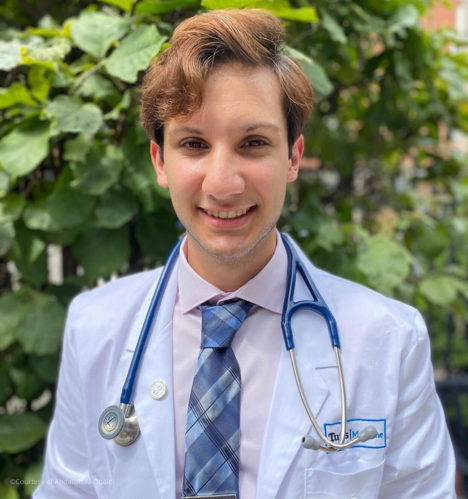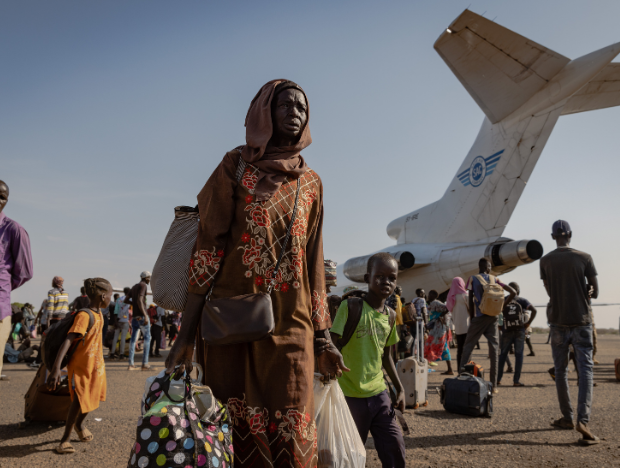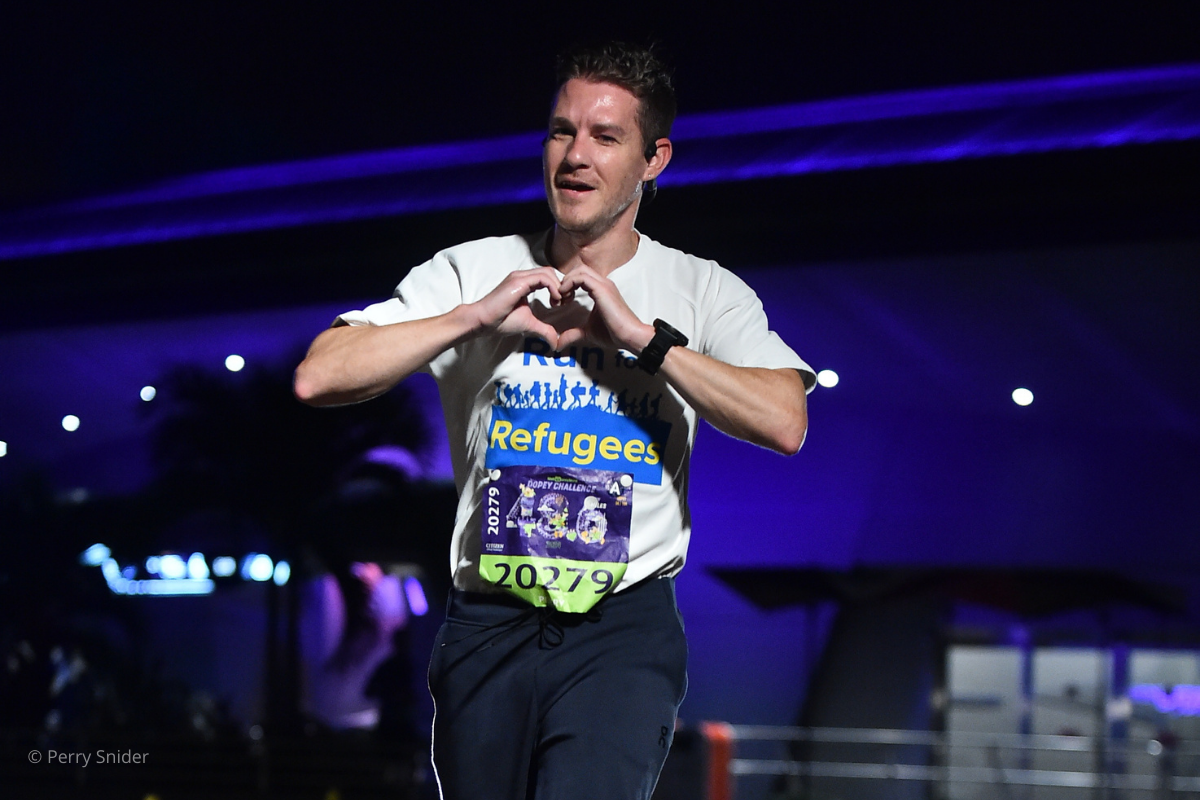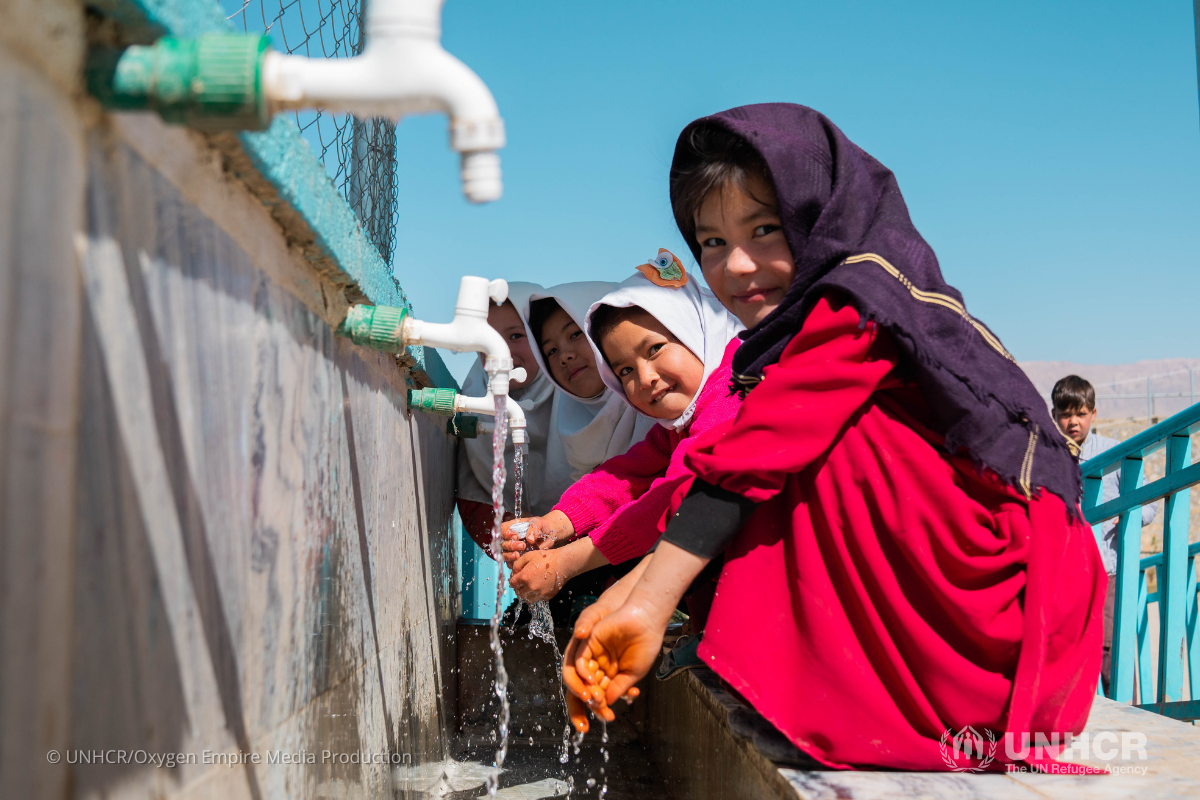Refugee resettlement: my second chance after fleeing Iraq
As a child in Iraq, my parents taught me to hide under the stairs when I heard the air raid sirens. Years later as an EMT in Atlanta, the wail of sirens means help is on the way.
“Med 67 you are dispatched to a house fire,” came across the radio one day while I was on duty. When we arrived minutes later, there was no house — only flames. The smell of smoke was distant, yet familiar. For a moment, flashbacks of the day my classroom was bombed in Iraq as a child filled my mind. But now, in Atlanta, a female patient lay on the grass. Motionless. Lifeless. Reminiscent of how my friends lay in that classroom so many years ago with glass all over them.
I started administering CPR and with each compression, my hands slid on her burned skin. “1, 2, 3… 28, 29…” Sweat was dripping from inside my gloves as we arrived at the emergency room. I did everything I could, but I could not save her.
That day, with the sirens blaring, I was reminded of what I had survived to get to the U.S. and to a point where I could try to help others. As an EMT during the height of the pandemic, I helped deliver care to some of the most economically devastated neighborhoods in Atlanta. I witnessed the disparity of care offered to the most vulnerable in my community. I experienced firsthand the dysfunction of our healthcare system. These experiences propelled my ambition to become a doctor and a change agent within the healthcare system.
Whether you are rich, poor, a veteran, unhoused, or just trying to make ends meet, I want to be there to help. Georgia, I have seen you at your worst, but I knew you at your most generous: when you welcomed me and my family as refugees in 2013.
And my experience of being welcomed in Georgia is not unique. For decades, refugees have moved to metro Atlanta in search of a better life, settling in the suburbs and enriching their communities with diversity and economic prosperity. Think about all the food options we have. Ten percent of the entire population of Georgia is made up of refugees and immigrants but only 60 percent of Atlantans say they know a refugee.
It matters that more people know refugees and know they know refugees. That personal connection helps us see how we’re the same more than we’re different.

Today, I’m a third-year medical student at Tufts University and my dedication to serving others has only grown. I founded the medical school’s chapter of the Young Physicians Initiative (YPI) — a nationwide program that helps young people interested in medical careers learn more about the field. It’s an essential program that helps guide individuals from traditionally disadvantaged social and economic backgrounds through the maze of applying to medical school and entering the medical field in the United States.
I’ve been active in YPI since high school. YPI founder, Dr. Heval Kelli, is also a former refugee, and he too got a second chance in Georgia, just like me. He is a mentor and a friend.
The Biden administration is preparing to announce the refugee resettlement cap for 2024. Each year while the resettlement number is deliberated, I pause and reflect on how my life has changed so much in the last decade.
Where would I be today if I hadn’t been given a second chance?
The honest answer is, I don’t know.
What I do know is that the refugee resettlement program in the U.S. is life-changing.
I’m now a U.S. citizen and my dream of becoming a doctor is quickly turning into a reality. I have come very far, but I did not make it this far alone. Now, my goal is to ensure that more are given a second chance and that those resettling here in the U.S. are supported as they pursue their dreams like I’ve been supported in pursuing mine.


